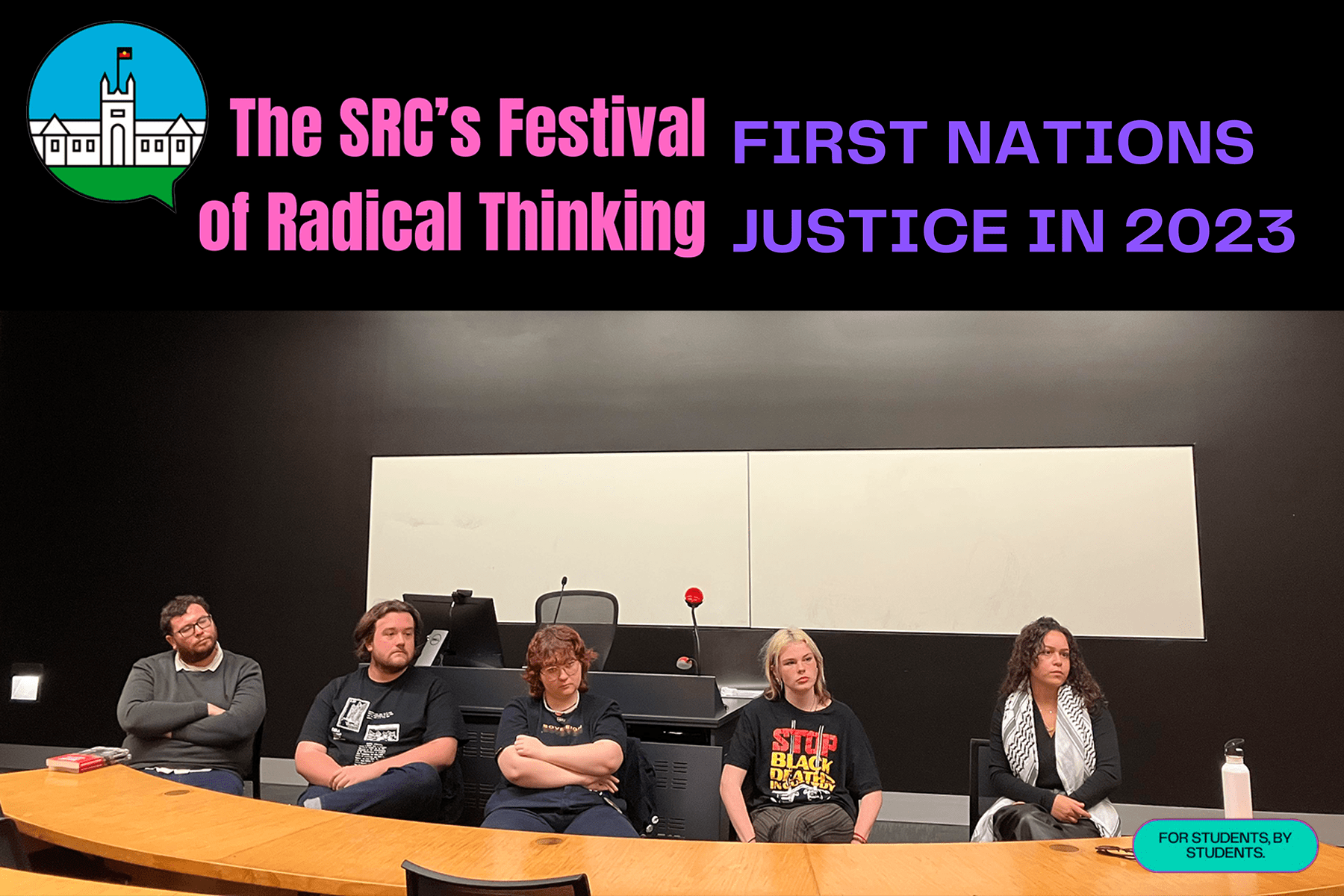The University of Sydney’s SRC hosted a panel discussion last Thursday discussing the intricacies of First Nations justice and its way forward.
The panel was hosted by USyd SRC Ethnocultural Officer Rand Khatib, and consisted of activists Ethan Floyd, Jordan Humphrey, Erin O’Leary and Taylah Cooper.
It began with a broad question about what we mean by “Indigenous justice,” and its significance in activist spaces. Dhungutti woman and activist Erin O’Leary, said that there’s no one answer for all First Nations communities. “You also can’t really have one full understanding of [what] treaty means for our communities. It means different things for a Koori person and also a Maori person,” added O’Leary.
Darug and Gundungurra activist Taylah Cooper emphasised the importance of Land Back and climate action for First Nations communities. “When a land is fracked, you hurt the mob both physically and mentally.”
Khatib then raised a question to Wiradjuri activist and journalist Ethan Floyd* about how he navigates the space of journalism as a First Nations person. According to him, the media has been an “historically hostile space” for Aboriginal peoples. He alluded to the instance of veteran journalist Stan Grant being pushed out of the ABC due to racism and an increased radicalisation of the right-wing media.
“When we, as First Nations people, see ourselves in media spaces, it encourages us to be more engaged. It encourages us to take our place here — it’s there for us, but we feel so afraid to be there because of what we know the repercussions are when we speak out about our issues and when we speak out about what we are facing as a community,” concluded Floyd.
O’Leary then reflected with Khatib on the Black Lives Still Matter rally that recently took place and expanded on the radical ideals we need to focus on during organising. She talked about the importance of allyship from non-Indigenous people and showing up to actions in order to “take some fucking weight off Blak people’s shoulders”. O’Leary iterated that organising means that the movement is led by First Nations people, but everyone comes in together to do the work, building movements and spreading the word in the process.
The floor was then opened to conversations about the upcoming Voice referendum. O’Leary talked about the need to have a grassroots movement when it comes to the referendum and critiquing Labor at every given step. She said that it’s important to vote Yes to “send a better sentiment to everyone because the thing is, if the Voice doesn’t win, I’m concerned that everyone’s gonna be like ‘Oh, the whole country’s racist. Nobody cares about Aboriginal people.’ We know that’s not the case.”
Humphrey shared the sentiment that there’s a lot of “low level racism from rightwing media saying that Indigenous people are privileged” in Australia. Debate around the referendum has revealed the bigotry towards Aboriginal communities and according to him, it is important to build a movement to combat that. He also agrees with the criticisms around the weakness of proposals and “Labor’s strategy to present a kind of aggressive face to the world while actually sucking up to fossil fuel companies and corporate Australia.”
Cooper quoted Audre Lorde, saying, “the Master’s tools will never dismantle the master’s house” to encapsulate the essence of criticising the colonial state’s actions. The floor was then opened to audience members for a Q&A session with the panellists.
*Footnote: Ethan Floyd is an editor at Honi Soit.





